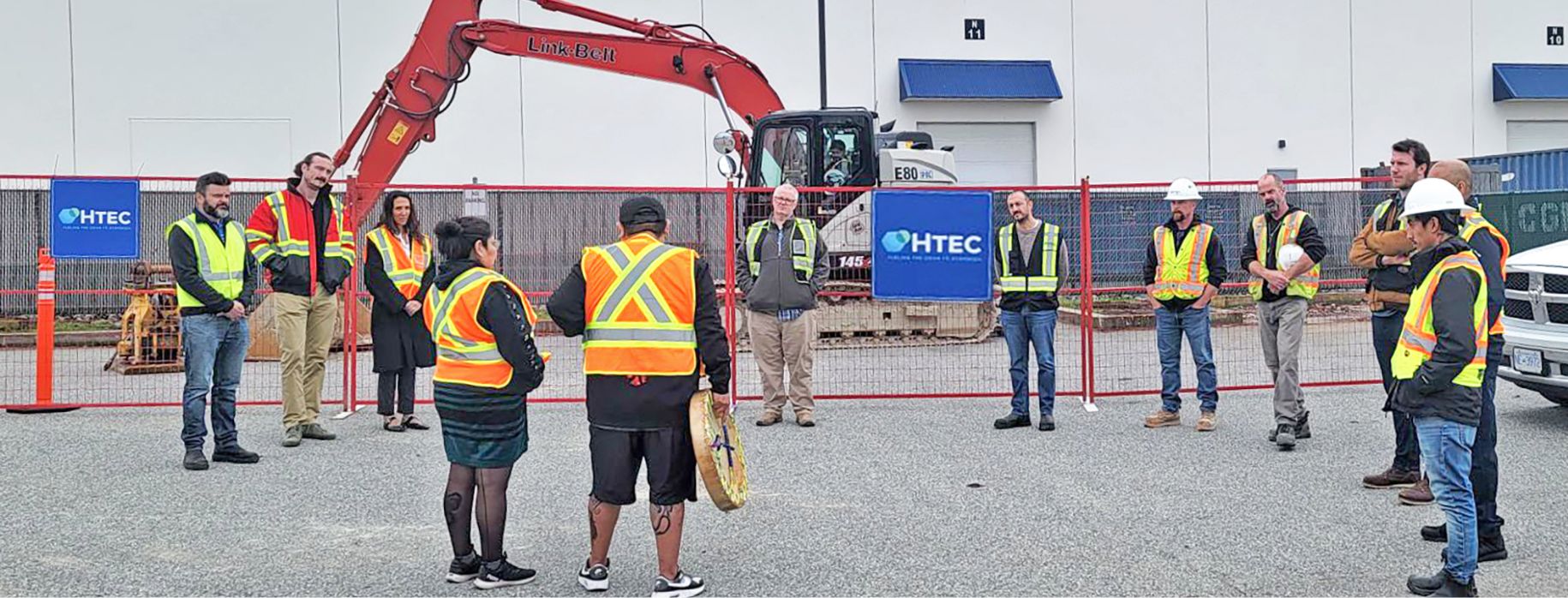Sustainability
Climate Action
HTEC’s purpose is rooted in our mission to achieve deep emissions reductions within the transportation sector. We are at the leading edge of fostering innovative solutions that not only reduce emissions, but also prioritize resilience, sustainability and equity in zero-emissions transportation infrastructure. Through the production, distribution and fueling of clean hydrogen, HTEC empowers businesses and individuals to significantly reduce GHG emissions, achieve decarbonization efforts, and participate in collective climate action.
To date, HTEC has abated over 1,500 tCO2e through our network of hydrogen fueling stations. Through our projects currently under development, we aim to reduce up to 400,000 tCO2e by 2030. That’s equivalent to 120,000 gasoline passenger vehicles taken off the road!
Reconciliation
Where We Work
HTEC respectfully acknowledges that its head office is situated on the traditional and unceded territories of the xʷməθkʷəy̓əm (Musqueam), Skwxwú7mesh (Squamish) and Səl̓ílwətaɬ (Tsleil-Waututh) Nations. Further, we recognize that as we grow and expand, our projects will span across the traditional territories of many Indigenous groups. We appreciate the diversity of Indigenous Peoples and what makes each nation unique. HTEC honours the history, culture, and ongoing connections of Indigenous Peoples across Canada, upon whose ancestral territories our projects are planned.
Purpose
Our vision is to be active participants in Indigenous reconciliation, promoting cultural respect and self-determination, all while aligning shared values of environmental stewardship to forge a sustainable and inclusive future that honors Indigenous heritage.
Our purpose is informed by the principles of the United Nation’s Declaration on the Rights of Indigenous Peoples (UNDRIP), the recommendations of the Truth and Reconciliation Committee’s Calls to Action, and the values of both HTEC and the people that contribute to its success.
Call to Action
As an organization, our approach to Indigenous engagement is rooted in the recommendations of the Truth and Reconciliation Committee’s (TRC) Calls to Action. Specifically, Call to Action #92 – Business and Reconciliation.
92. We call upon the corporate sector in Canada to adopt the United Nations Declaration on the Rights of Indigenous Peoples as a reconciliation framework and to apply its principles, norms, and standards to corporate policy and core operational activities involving Indigenous peoples and their lands and resources.
Guiding Principles
HTEC’s approach to reconciliation with Indigenous communities is grounded in the following principles & goals:
1. Advance reconciliation by engaging in meaningful discussions with Indigenous communities, nations and organizations and building respectful relationships based on mutual understanding, trust, and cooperation.
2. Obtain social license to operate by embracing the principles of free, prior, and informed consent to advance decarbonization efforts and propel the clean hydrogen industry forward.
3. Identify opportunities for inclusive participation in the hydrogen industry that promote Indigenous involvement in sustainable economic development, economic empowerment, and environmental stewardship.
4. Foster transparent communication pathways to facilitate the integration of Indigenous knowledge systems into progressive climate solutions, while also preserving cultural heritage within Indigenous communities.
5. Acknowledge the need for continuous learning and understanding of the histories, experiences, and perspectives of Indigenous peoples that recognizes their inherent rights, knowledge, and aspirations.

Alignment with EGBC Principles
Professional engineers in Canada have a duty to uphold and protect the public interest respecting the practice of professional engineering and intercultural competency.
Engineers and Geoscientists BC (‘EGBC’) is advancing five recommendations from the Truth and Reconciliation Commission’s 94 Calls to Action. As a registrant firm, everyone at HTEC is part of this work and will align with EGBC’s five recommended Calls to Action.
Indigenous Procurement Policy
As part of our efforts to support economic empowerment within Indigenous communities, HTEC is developing an Indigenous Procurement Policy, which aims to achieve the following objectives:
- Make reasonable efforts to explore opportunities for collaborating with Indigenous-owned companies or Indigenous revenue-sharing contractors.
- Engage with Indigenous-owned businesses to better understand their offerings and capabilities relevant to HTEC’s business.
- Improve processes for identifying and including Indigenous-owned businesses in procurement opportunities.
- Take into account potential capacity limitations when developing procurement criteria.
- Equip procurement and project teams with cultural sensitivity awareness training.
We recognize that this policy is a living document and will continue to evolve as we learn and refine our approach to best serve the needs of Indigenous partners.
